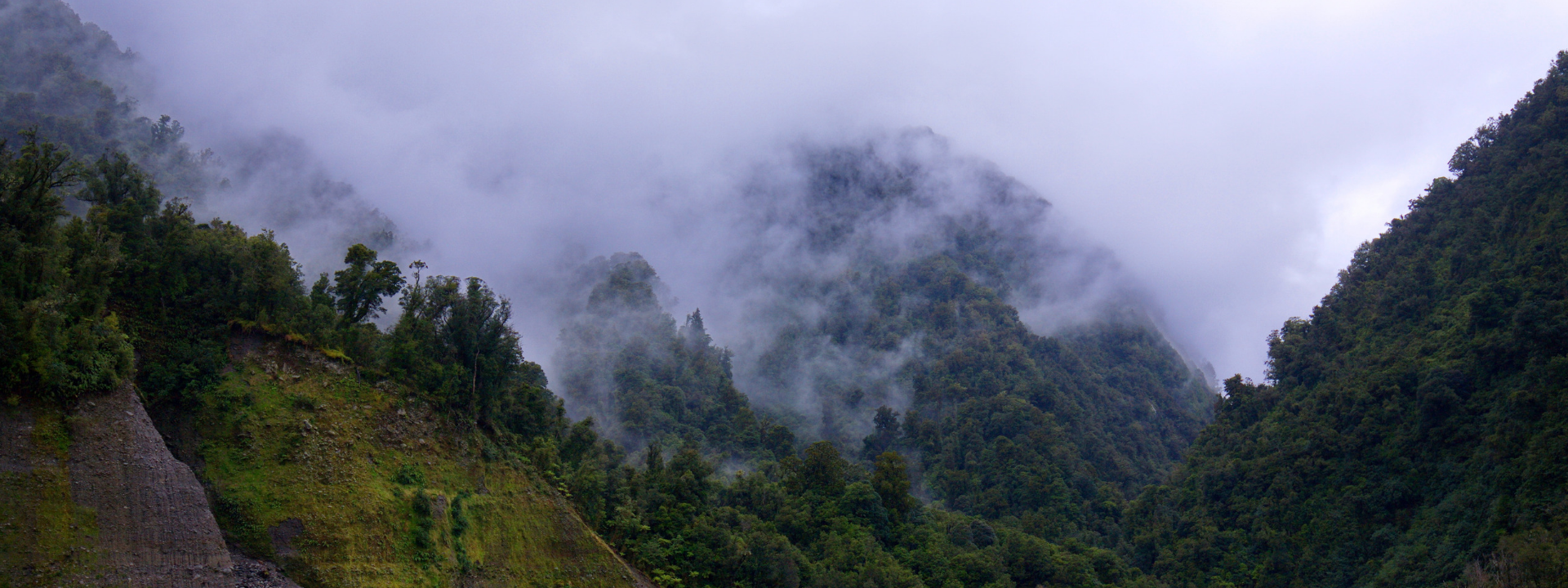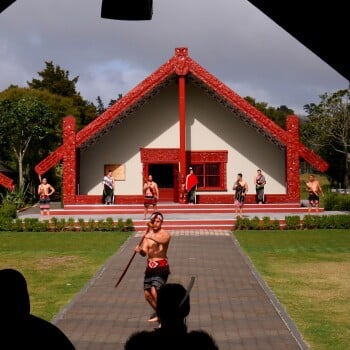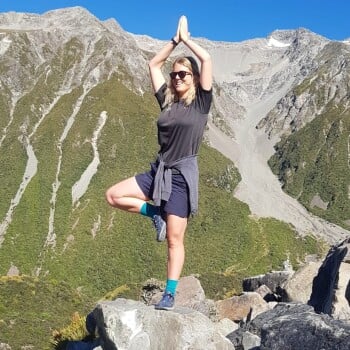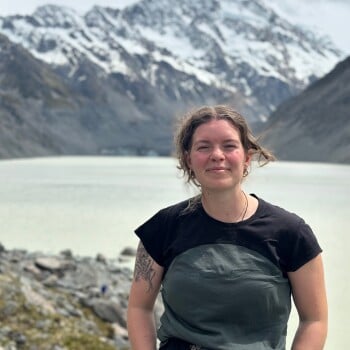- About Us
-
Trips
-
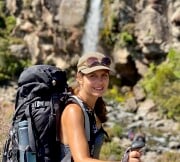 Kiwi-Style Hiking
Kiwi-Style Hiking
-
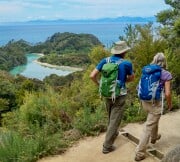 Great Walks
Great Walks
-
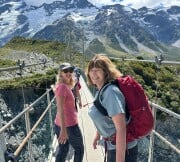 Hiking Tours
Hiking Tours
-
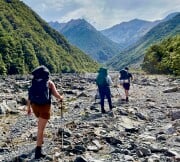 Alpine Hikes
Alpine Hikes
-
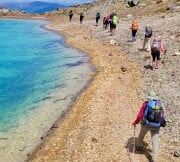 Custom Groups
Custom Groups
- Huayhuash Trek
- Family Northern Explorer
- Family Southern Explorer
- Lake Waikaremoana Hike
- Women's Custom Tours
- Women's Southern Wilderness
- Coast, Canyons and Mountains
- Coastal Wanderer Custom Tour
- Don't Cross the Ladies
- Secret South Custom Tour
- Tekapo Hike
- West Coast Custom Tour
- World Heritage Custom Tour
-
- Blog
- Shortlist
- About Us
- Trips
- Blog
- Shortlist

Oct 25, 2018
I’m relieved it’s an unusually warm night as I hide out in the manuka trees wearing nothing but my underpants. From my hiding place I can watch the scene unfold before me. It’s a windy night and a tree has come down over our tent fly while we were asleep. I bolted, it was fight or flight and I obviously decided I was more of a flyer than a fighter. I’ve had a bit of a knock to the head and ‘man’- I am confused. One of my tent buddies is calling out my name but the rescue party that has just arrived are still trying to take stock of the carnage they have found in this usually tranquil and beautiful part of the Lewis Pass scenic reserve. I hear moaning from someone else in our crew and one of the rescuers starts talking about CPR – this is turning out to be a night from hell. Meanwhile I’m starting to shiver, but my head is reeling from what I am seeing, and I just don’t seem to have the mental capacity to help myself much or call out. Thankfully the rescuers are a smart bunch and they eventually notice the empty sleeping bag and one of the victims keeps going on about ‘Dan, where’s Dan?’ They fan out and quickly find Captain Underpants fumbling around in the dark acting all ‘dazed and confused’.
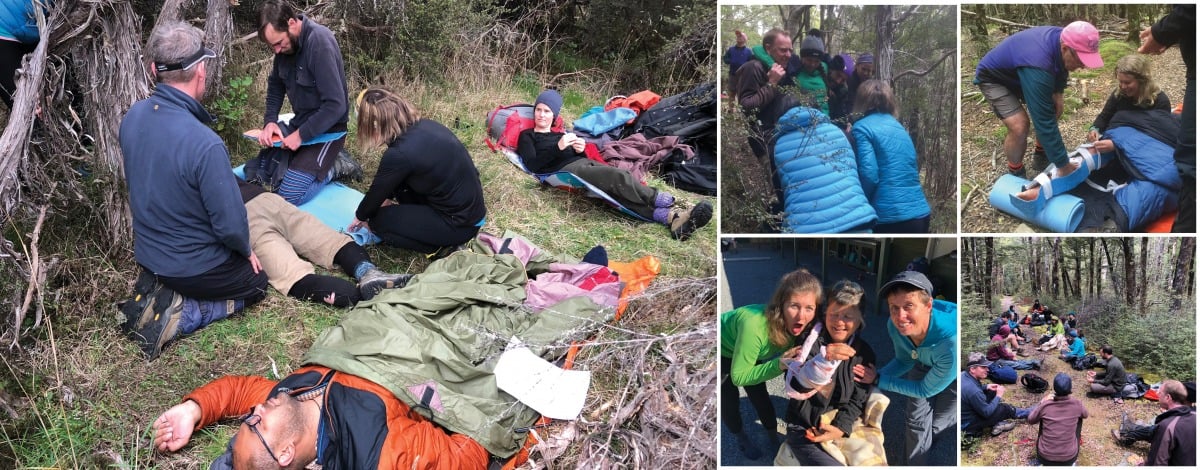
This is our first ‘scenario’ and the first of many we will run over the course of the next 2 days at our annual Guide training weekend. During our 20 years in business we have found the scenario-based training to be the most effective way of training first aid. It teaches guides to make sound decisions when under a lot of pressure, to work with limited resources (what they have in their pack), cope with the stress of an emergency situation and constantly be thinking of the ‘what if?’ Saying things like - “If this was for real I would…” is forbidden too and gets some stern words from Grum our instructor, a veteran ambulance officer, volunteer fire man and guide. So, it becomes the perfect training ground for effectively immobilizing broken femurs with walking poles, branches, bed rolls and insulation tape. Or trying to move someone with a suspected spinal injury in deteriorating weather, in shock and in danger of becoming hypothermic, and just to add to the drama we might throw in a highly stressed partner of a victim who starts getting irrational and combative when we try to touch their loved one. We are always impressed at the acting and theatrical skills of our guides when given roles like this!
I will never forget standing in my bedroom a couple of days after one of the first weekends I attended, when two cars collided right outside my house, sending one into a power pole. Despite what I had been told about cars only bursting into flames in the movies, this car did actually burst in to flames! I had the uncanny feeling as I walked (but didn’t rush or panic because that is what had been hammered into me at the weekend) out the door that evening to respond, that this was just another scenario. I needed to follow a process and share feedback with my fellow first aiders at the end! It definitely helped me stay calm and find the ‘flyer’ who had fled the scene straight after the crash and was hiding in someone’s garden in a state of shock. Thankfully no one was seriously injured that night.

Another key part of the weekend is the opportunity for guides to get to know their co-workers and share stories of life on the road. It’s one of the ironies of this type of work that, as you are often working in a solo guide role, sometimes the only contact with other guides is a quick chat on the side of the road or track when your respective itineraries cross paths. Our North Island guides come down too and this is a great chance to put faces to the names they hear so much about from clients.
Now our season is upon us and we definitely don’t want to find anyone wandering around at night dazed and confused only clad in underpants but at least we‘ll be prepared if we do!

